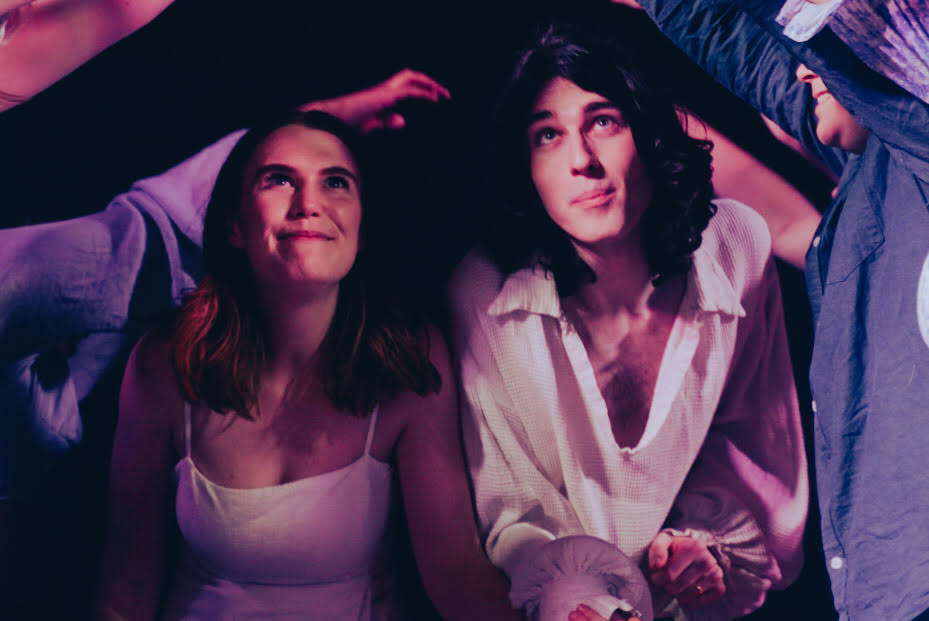Eurydice - GRADS Theatre Company
- Kate O'Sullivan
- Jul 19, 2025
- 2 min read
Reviewed by Kate O'Sullivan
GRADS Theatre Company’s production of Eurydice offers a tender and visually poetic take on Sarah Ruhl’s modern reimagining of the Orpheus myth. Performed in the intimate black box space at The Actors Hub, director Abbey McCaughan leans into the play’s surrealism while drawing on the emotional truth that lies beneath its lyrical surface.
Josie Walsh leads the production with a strong and steadily deepening performance as Eurydice. As the narrative unfolds, she grows into the emotional demands of the role, particularly shining in the Underworld scenes, where her connection with Grant Malcolm’s Father becomes the show’s beating heart. Their relationship is beautifully rendered, with Malcolm delivering a warm, contemplative performance full of subtle grace.
By contrast, the early scenes between Walsh’s Eurydice and Tom Tasovac’s Orpheus would benefit from more texture. These opening moments carry the responsibility of grounding the audience in a recognisable emotional world before the play veers into the metaphysical. Without enough naturalistic interplay to anchor their bond, the impact of the story’s central tragedy is slightly blunted.
The Stones – voiced by Lukas Perez, Abby Kotara, and Declan Morton – are a highlight, bringing just the right amount of eerie detachment and stylised comedy. The trio successfully balances vocal similarity and distinction, carving out their characters within the chorus while maintaining a cohesive tone. However, in such a confined venue, the vocal projection of all performers – consistent and unamplified – meant that the character of “Loud Stone” didn’t register as particularly louder than the rest, slightly undercutting the intended contrast.
Becca Attwood’s interpretation of Hades brings an interesting twist to the role, with a shift from initially grounded to childlike and exaggerated in later scenes. While this tonal contrast is conceptually compelling, it creates a disconnect within the character's arc. The portrayal lacks the commanding presence traditionally associated with the Lord of the Underworld, which in turn diminishes the dramatic tension in scenes where Hades should feel imposing. The ideas behind the performance are solid, but a more consistent sense of authority and menace could have elevated Hades’ stature in the broader narrative.
The production also makes the bold choice to double the traditional trio of Stones, adding extra bodies for greater physicality and visual flair. While this does enrich some of the movement work, it also makes the already-small space feel occasionally congested, particularly in scenes that require stillness or intimacy.
Despite these challenges, Eurydice remains a thoughtful and emotionally sincere piece of theatre. The cast’s dedication is evident, and McCaughan’s direction honours the poetic spirit of Ruhl’s script while finding poignant emotional beats along the way. GRADS Theatre Company continues to engage with ambitious material, and while some performances could benefit from more grounding or restraint, there is plenty of promise and heart in this production.
For those open to a poetic and slightly abstract take on a familiar myth, Eurydice offers a meditative journey through memory, loss, and the fragile power of connection.

Reviewer Note: Kate has previously worked with members of this cast. Tickets for this review were provided by the theatre company.






Comments